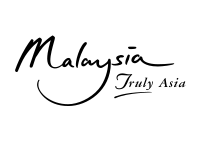About this Package
In this region of Malaysia, ever since its founding by the British East India Company in 1786, Penang had been a colourful emporium where different people meet: Arabs, Acehnese, Persians, Indians, Chinese, the Siamese, and, their great adversaries, the Burmese. For all these sojourners-turned- émigrés, British Penang was like a shining beacon of hope and possibility, a veritable marketplace where profits could be made and dreams of a better life were realised.
From North Sumatra, and its mercantile cities of Acheh and Medan, came the Hokkien merchants, weary of high Dutch taxes and the absence of law and order. They sought British assurance of a peaceful, secure environment to do business. Circumstances dictated that most of these early emigrants were men, as unforeseen but very real dangers precluded their womenfolk from accompanying them.
As they settled down in this new land, the emigrant men inevitably took on Malay wives, giving rise to new hybridised communities called Peranakan. The Peranakans in Penang, also known as the Straits Chinese (or Babas and Nyonyas) was one such: sino-centric, but which drew heavily from its native Malay matriarchal influences on daily life: language, dress, and food. Babas referred to the men in the community, whilst the womenfolk were called Nyonyas. As the kitchen was deemed a woman’s domain, Straits Chinese cuisine became known as Nyonya cuisine.
Package Includes
accommodation
Areca Hotel Penang - twin/double sharing
transport
activities
Peranakan trial on Nyonya and Jawi
meals
others
Package Exclude:
Airfare, entrance fee, optional tour/meals, personal insurance, tips, hotel surcharge during weekends/public holiday/eve public holiday/peak season, personal expenses
